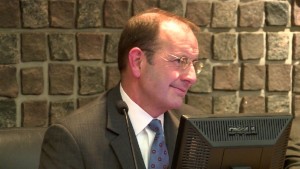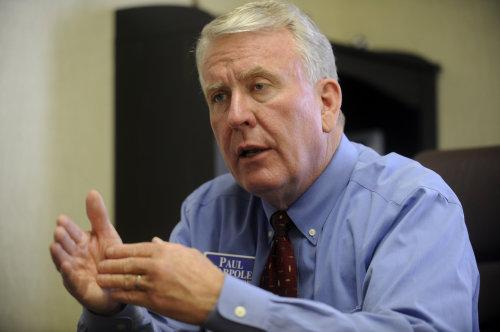I have told you on this blog about how Farmersville, a small city in Collin County, works to avoid the appearance of secret meetings among its City Council. It posts a “notice of potential quorum” when council members plan to gather in the same room … even for a social event!
The notice seeks to forestall any question among residents whether the council is acting in the public interest, or talking about public matters in, um, “secret.”
I happen to think it’s a capital idea that perhaps ought to be written into the Texas Open Meetings Act.
I haven’t told you, until now, how City Attorney Alan Lathrom came up with the idea.
It was in 1995. Lathrom served on the legal staff in Arlington, Texas, in Tarrant County. The Arlington City Council planned to attend the inaugural of newly elected Gov. George W. Bush. So, the council rented a bus, on which all the members would ride from Arlington to Austin to attend Gov. Bush’s inauguration.
Lathrom then had this notion: What if someone questions whether the council is conducting public business on the lengthy bus ride from here to there, and then back again? He told me recently there had been some rumbling and grumbling in Arlington about the council being in the same vehicle for such a lengthy period of time.
He came up with the idea of posting the bus ride as a notice of a “potential quorum” by the City Council. He decided to post it in accordance with the statute that requires a 72-hour notice prior to the “quorum” forming inside the bus.
The trip occurred. The council went to Austin to clap for the new governor. They shook many hands, slapped many backs, had a great time and returned home to Arlington. My guess is that it didn’t pass any ordinances either while traveling to Austin and back.
With that, an idea was born and it lives on today in little ol’ Farmersville, Texas.
Well played, Mr. City Attorney.




